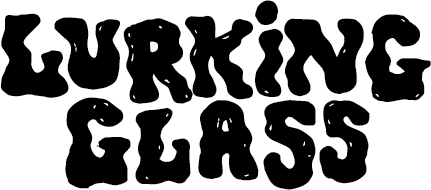Is everything a scam?
A few months ago, I got a letter from a debt-collection agency stating that I owed more than six thousand dollars to AT&T, and that if I wanted to contest the debt I had to contact the company by mail and they would send me documents to fill out so I could officially file a dispute.
I was about 97 percent sure that I had no such debt. My phone had melted down in a spectacular manner several weeks earlier, and I found it hard to believe that AT&T would have let me just waltz in to replace it without reminding me of a $6K debt. On the other hand, it didn't seem like the most obvious scam: The debt-collection agency exists and is apparently legitimate. The notice had come via USPS rather than, say, an email address with an official letterhead but a “from” address like scumkitty@thundercoxx3dokx.com. Googling the company's name and adding "scam" to the search wasn't particularly helpful: Its Better Business Bureau entry bristles with one-star reviews, but for every three that outright call it a con there's one acknowledging that the company collects on legitimate debt, albeit often in a shady or harassing way.
All it took was a trip to the AT&T store in person to confirm that I didn't owe the money, and I definitely should have done that first. Unfortunately, what I did instead was call the debt-collection agency. There, a man at an overseas call center all but convinced me that someone had stolen my identity, opened an AT&T account in my name using my street address, and run up thousands of dollars in debt in a two-month span of 2023. How was that possible? I asked the man. Whoever opened the account probably purchased a lot of equipment from AT&T, he answered, not missing a beat.
My bullshit radar was pinging all over the place; at the same time, I felt panicked and slightly dizzy, my brain toggling between This is totally fake! and But what if it isn't? on repeat. I was checking my credit report for the third time that week when I got an email from PayPal alerting me that I still hadn't paid the [squints] $468 dollars for a [leans closer to screen] new laptop that was about to be shipped from [puts on reading glasses] an address in Finland. And that's when I snapped into reality with two awful realizations.
The first: Of course the debt-collection letter was a scam. The second: I'm going to be doing shit like this for the rest of my life, while getting worse and worse at recognizing it.
Fraud is a fact of life for older Americans, and as a middle-aged woman I am thoroughly annoyed at the prospect of becoming invisible yet simultaneously identifiable as an easy mark. (Pick a lane, society!) People over 60 have long been targets for flimflam artists, and elder fraud is so commonplace that AARP has a biweekly newsletter focused on emerging scams and how to avoid falling for them. According to the Federal Trade Commission, the percentage of people who reported being hoodwinked out of money in 2023 rose by roughly 25 percent in 2024. And new technologies and methods now emerge faster than ever to exploit those least likely to be on the cutting edge of them. Cryptocurrency grifts, tech-support fakeouts, phone calls that deploy A.I. to dupe victims into paying ransoms for "kidnapped" children and grandchildren—any senior citizen with a smartphone and an email account will spend a big chunk of their golden years dodging increasingly sophisticated con jobs.
But it’s not just older people who are vulnerable to scams. We’re living in a golden age of grifting in which scam is both an ever-looming danger and a consistent source of entertainment. As a subset of true crime, pop culture about scams has, like scamming itself, really spiked in the last decade. Spending your days fending off fraud calls and phishing emails and your nights kicking back with a Netflix documentary about people getting fleeced by a real-life huckster can be done with very little cognitive dissonance. For now, anyway.
I know this because I'm guilty of being a voracious consumer of cons, devouring magazine articles and ripped-from-the-headlines streaming shows and YouTube videos about latter-day swindlers and their jaw-dropping crimes. And because these stories tend to unfold in clearly delineated, often rarified environs far enough removed from my own life to seem fictional-ish, I can enjoy them. The Gray’s Anatomy grifter? I was riveted. Caroline Calloway? Tell me everything. Startup scammers like Elizabeth Holmes of Theranos and WeWork’s Adam Neumann? Yes and yes. The Fyre Festival? Stick it straight into my goddamn veins.
So I was 100 percent the target audience for the new memoir You’ll Never Believe Me: A Life of Lies, Second Tries, and Things I Should Only Tell My Therapist, written by a woman whose name was once briefly, memorably synonymous with giddy scam-watching. It was the late 2000s in New York, and 22-year-old ex-Mormon Kari Ferrell had moved from Utah to Brooklyn, where she targeted skinny-jeaned white boys for petty theft, charmed her way into a dream job at Vice, and told friends she had cancer—a misspent youth that helped make up for a childhood spent, as a transracial adoptee from South Korea, feeling like an imposter.
When Vice discovered that Ferrell was wanted in her home state for felony fraud, she became an overnight media sensation dubbed The Hipster Grifter. Gawker tirelessly covered every break in Ferrell’s case, thrilling to the novelty of the fraudster herself (cute, droll, tattooed, shameless) and smirking at her marks (moneyed, horny white Brooklynites); she became the template for a new generation of utterly watchable, mediagenic hustlers who inspired in onlookers a cautious schadenfreude (after all, you’d never fall for her con) and anticipated the rise of scamming as a cultural obsession.
There’s a redemption arc to Ferrell’s book: After a stint in prison, she struggled to build a post-grifting life but found nearly every positive step she took dogged by her past. I couldn’t help thinking that Ferrell’s main problem was timing: Had she started her scamming a decade later, the spotlight just wouldn’t have been so bright. Even the marquee grifters of recent years, like Anna Delvey and Simon “The Tinder Swindler” Leviev, would be less likely to stand out in today’s crowded field of fraudsters. There is simply no place where scams aren’t currently thriving, including the office of the U.S. president, where an effort to dismantle the Consumer Financial Protection Agency and curb regulatory oversight of banks and other financial institutions hasn’t been realized—yet.
And it’s not just that scams are proliferating, it’s that even a bad scammer can make a career from it, leveraging their notoriety in ways that wouldn’t have been imaginable in Ferrell’s era. Delvey has shown up on Fashion Week catwalks and Dancing With the Stars, Neumann apparently had little trouble finding investors for his new real-estate venture, and a concerning number of people still support Calloway as she grifts happily onward. The whiteness and normative good looks of these three in particular is surely a factor in their ability to gain others’ trust. But trust, in these cases, might be beside the point: When you’ve got charisma so enveloping that people seem to actually want to be conned by you, can you really turn it off?
It’s a little hard to contend with this reality: On one hand, there's a need for constant vigilance against scammers, be they TikTok influencers or members of Congress or faceless texts warning you that you’ll be arrested if you don’t pay the outstanding balance on your E-Z Pass. On the other, there's a glut of content asking us to marvel at, appreciate, and even be inspired by the batshit ingenuity of a growing pantheon of scam gods and goddesses. You can argue—and many have—that America has always been an assemblage of scams masquerading as a republic. I’m already exhausted at the prospect of living out the rest of my years in this loud, proud griftocracy, and my appetite for scam consumption is waning.
Then again, there’s a second Fyre Festival set to take place at the end of May, and it’s already promising to be a shitshow.
Notes and more
Sign up for AARP’s biweekly scam-alert newsletter; you don’t have to be an AARP member to take advantage, but you will have to create an online account to get the newsletter.
Read more about Keri Ferrell’s memoir from The New York Times’s Amanda Hess.
One of my fave Substacks, Oldster, had a Friday open thread asking people to share their stories of falling—or failing to fall—for a scam.
Read more about the Trump administration’s threats to the Consumer Financial Protection Bureau, and explore ways to fight back against the griftocracy.
Listen to funny people discussing fraud on comedian Laci Mosely’s Scam Goddess podcast.


